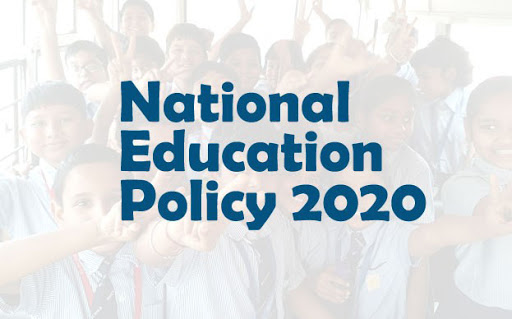The Ministry of Education reveals the new National Education Policy on July 30. This policy has been brought into picture to shape the ideas of education into a newer dimension. It proposed the ideals in the teaching and assessment systems in schools, colleges and in other professional institutions.
Lets us look on what the Ministry has proposed to enlighten us.
- Schools- The 10+2 system will be divided into 5+3+3+4 scheme. Co-curricular activities will be given same preference as the core subjects. Analytical thinking, critical and conceptual thinking will be enhanced in the schools and the children will be taught to code from grade 6 onwards.
- Report cards- the student’s performance reports will be generated through an artificial intelligence software. This software will track their growth and review their learning performance. The students will have to take exam in grades 3,5 and 8 to track their progress.
- Board exams- the exams will be held in two difficulty levels. The students will be given a second chance to improve their scores.
- Language policy- the medium of education till class 5 should be in their regional or should in their mother tongue. The student will also be given an option to learn 3 languages out of which 2 should be native Indian languages.
- Common entrance exam- the National Testing Agency (NTA) will conduct a common entrance examination (CEE) for admissions to all the universities across the nation. This will be common platform and reduces the burden of students who are preparing for various universities having their own entrance exam. However, it will not be made mandatory for universities to take the NTA into account.
- Exit point- the undergraduate degree will be of 3 or 4 years and there are multiple exit options provided for the students. Completing a year in any field will enable them with a certificate, diploma for two years, degree certificate for three years, and a bachelor degree with research for a four-year research-oriented program.
- Foreign universities- many high-performing Indian universities will be able to set up their campuses abroad, and similarly the foreign universities will also be able to set their campus here. India will also be providing premium education services at an affordable cost. Hence it will be regarded as the global study destination provider.
- Credit bank- An Academic Bank of Credit (ABC) will be created which stores the academic credits earned from various recognized Higher Educational Institutes (HEIs). The degrees will be issued based on the credits earned.
- Educational Technology- the National Educational Technology Forum (NETF), an autonomous body, will be set up for free innovative exchange of ideas. This will enable the use of technology to enhance learning, assessment, planning, administration and so on. This will be established for schools and colleges also.
Apart from these there are other factors that the Ministry of Education wishes to enhance. By the end of 2030, the country wishes to have an HEI every district inviting multidisciplinary courses. It also aims to increase the gross enrolment ratio to 50% by 2035. More holistic and multidisciplinary courses will be offered in the institutions soon.

